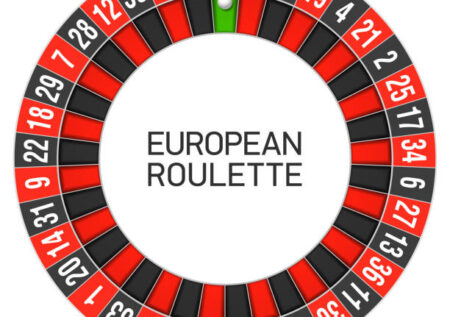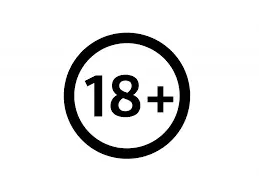What is Roulette?
Roulette is a classic casino game that has been captivating players for centuries. The game’s name comes from the French word for “little wheel,” which perfectly describes the central component of the game—a spinning wheel with numbered slots. The objective of roulette is simple: predict where the ball will land after the wheel is spun. Despite its simplicity, the game offers a wide range of betting options, from straightforward bets on a single number to more complex strategies involving combinations of numbers.
Basic Rules of Roulette
Whether you’re playing at a brick-and-mortar casino or online, the rules of roulette are generally the same. Here’s a quick rundown of how the game works:
- The Wheel: The roulette wheel features 37 numbered pockets in European and French roulette (1 to 36, plus a single zero) and 38 pockets in American roulette (including an additional double zero).
- The Table: Players place their bets on a layout corresponding to the numbers on the wheel. Bets can be placed on individual numbers, groups of numbers, or even on characteristics like colour (red or black) or whether the number is odd or even.
- The Spin: Once all bets are placed, the dealer spins the wheel in one direction and sends a small white ball spinning in the opposite direction. The ball eventually loses momentum and lands in one of the numbered pockets, determining the winning number.

Types of Roulette
There are several variations of roulette, each with its unique features and house edge. Understanding these differences can help you choose the version that best suits your playing style and preferences.
European Roulette
European Roulette is the most popular version of the game in the UK. It features 37 pockets, with numbers 1 to 36 and a single zero. The single zero gives the house a slight edge, with a house edge of 2.70%. This version is favoured by many players because it offers better odds than the American version.
American Roulette
American Roulette is similar to European Roulette but with one key difference: it includes an additional pocket, the double zero (00). This extra pocket increases the house edge to 5.26%, making it less favourable for players compared to European Roulette. While American Roulette is popular in the United States, UK players tend to prefer the European version due to the better odds.
French Roulette
French Roulette is another variation that is quite popular among UK players, especially those who enjoy a lower house edge. This version also uses a wheel with 37 pockets, like European Roulette, but it includes additional rules like “La Partage” and “En Prison.” These rules can significantly reduce the house edge, making French Roulette one of the most player-friendly versions of the game.
Mini Roulette
Mini Roulette is a scaled-down version of the game, played on a smaller wheel with only 13 pockets (numbers 1 to 12 and a single zero). This version is less common but offers a quick and fun alternative to the traditional game. However, it comes with a higher house edge, so it’s more of a novelty than a serious alternative.
Why Roulette is Popular in the UK
Roulette’s enduring popularity in the UK can be attributed to several factors:
Easy to Learn, Hard to Master
Roulette is a game that anyone can pick up quickly. The basic rules are straightforward, and even complete beginners can start playing within minutes. However, mastering the game requires an understanding of the different betting options and strategies, making it appealing to both casual players and serious gamblers.
A Social Experience
In both land-based and online casinos, roulette is often a social game. The communal nature of the betting table, the anticipation as the ball spins, and the collective cheers when someone wins create an atmosphere of excitement and camaraderie. This social aspect makes roulette a favourite choice for groups of friends visiting the casino.
Wide Range of Betting Options
Roulette offers a variety of betting options to suit different playing styles and bankrolls. Whether you prefer low-risk bets like red or black, or you’re feeling lucky and want to bet on a single number, there’s a bet for everyone. This flexibility is one of the reasons why roulette appeals to such a broad audience.
How to Play Roulette: A Quick Guide for Beginners
If you’re new to roulette, don’t worry—it’s easy to get started. Here’s a step-by-step guide:
Step 1: Understand the Layout
The roulette table features a grid of numbers and additional betting areas for outside bets like red/black, odd/even, and high/low. Familiarize yourself with the layout before placing your bets.
Step 2: Place Your Bets
Once you understand the layout, it’s time to place your bets. You can place multiple bets in each round, either on individual numbers, groups of numbers, or outside bets. The different types of bets include:
- Straight Up: A bet on a single number. Pays 35:1.
- Split: A bet on two adjacent numbers. Pays 17:1.
- Street: A bet on three numbers in a horizontal line. Pays 11:1.
- Corner: A bet on four numbers that meet at a corner. Pays 8:1.
- Six Line: A bet on six numbers in two adjacent rows. Pays 5:1.
- Red/Black: A bet on whether the winning number will be red or black. Pays 1:1.
- Odd/Even: A bet on whether the winning number will be odd or even. Pays 1:1.
- High/Low: A bet on whether the winning number will be in the lower (1-18) or higher (19-36) range. Pays 1:1.
Step 3: Spin the Wheel
After all bets are placed, the dealer spins the wheel and releases the ball. The ball eventually lands in one of the numbered pockets, determining the winning bet. If your bet matches the outcome, you win according to the payout odds.
Step 4: Collect Your Winnings
If you’ve placed a winning bet, the dealer will pay you based on the odds of your bet. For example, a straight-up bet on a single number pays 35:1, so if you bet £10, you’d receive £350 plus your original bet back.
Roulette Strategies: How to Improve Your Odds
While roulette is primarily a game of chance, there are strategies you can use to manage your bankroll and potentially improve your odds of winning. Here are a few popular strategies:
The Martingale System
The Martingale System is one of the most well-known betting strategies in roulette. The idea is simple: double your bet after every loss, so when you eventually win, you’ll recover all your previous losses and make a profit equal to your original bet. While this system can be effective in the short term, it requires a substantial bankroll and comes with significant risk.
The Fibonacci System
The Fibonacci System is a safer alternative to the Martingale, based on the famous Fibonacci sequence. With this strategy, you increase your bet according to the sequence (1, 1, 2, 3, 5, 8, etc.) after a loss and move two steps back after a win. This approach is less aggressive and can help you manage your bankroll more effectively.
The D’Alembert System
The D’Alembert System is another popular betting strategy that involves increasing your bet by one unit after a loss and decreasing it by one unit after a win. This method is more conservative than the Martingale and Fibonacci systems, making it a good choice for players who prefer a balanced approach.
The Labouchere System
The Labouchere System, also known as the cancellation system, is a bit more complex but offers flexibility. Players start with a sequence of numbers (e.g., 1, 2, 3, 4) and bet the sum of the first and last numbers. If you win, you remove those numbers; if you lose, you add the amount lost to the end of the sequence. The goal is to eliminate all numbers in the sequence, at which point you’ve made a profit.

Comparing Roulette to Other Casino Games
How does roulette compare to other popular casino games like blackjack, poker, or slots? Here’s a quick comparison:
| Feature | Roulette | Blackjack | Poker | Slots |
|---|---|---|---|---|
| Skill vs. Luck | Primarily Luck | Skill and Luck | Skill and Luck | Primarily Luck |
| House Edge | 2.70% (European) | 0.5% – 1% (with strategy) | Varies (depending on variant) | Varies (typically higher) |
| Social Interaction | High | Moderate | High | Low |
| Betting Options | Extensive | Limited (hit, stand, etc.) | Extensive | Limited |
| Game Speed | Medium | Medium to Fast | Slow to Medium | Fast |
As the table shows, roulette offers a unique combination of luck-based gameplay, social interaction, and extensive betting options, making it a standout choice for many UK players.
Conclusion
Roulette is a timeless classic that continues to captivate UK players with its blend of simplicity, excitement, and the thrill of chance. Whether you’re new to the game or a seasoned player, there’s always something new to discover at the roulette table. With its wide range of betting options, social atmosphere, and potential for big wins, it’s no wonder roulette remains one of the most popular casino games in the UK.
So why not give it a spin? Whether you’re playing online or at a land-based casino, roulette offers an experience like no other. From the suspense of watching the ball bounce around the wheel to the joy of a big win, roulette is a game that truly has it all.
FAQs About Roulette
Is Roulette available at all UK online casinos?
Yes, roulette is one of the most widely available games at UK online casinos. You’ll find multiple variations, including European, American, and French roulette, at nearly every site.
Can I play Roulette on my mobile device?
Absolutely. Most UK online casinos offer mobile-compatible versions of roulette, allowing you to play on your smartphone or tablet with ease.
What is the RTP (Return to Player) for Roulette?
The RTP for roulette varies depending on the version. European Roulette typically offers an RTP of 97.3%, while American Roulette has a lower RTP of 94.74% due to the additional double zero.
Do I need a strategy to win at Roulette?
While roulette is a game of chance, using a betting strategy can help you manage your bankroll and potentially improve your odds of winning in the long run.
Are there any bonuses for playing Roulette?
Many UK online casinos offer bonuses specifically for table games like roulette. These can include deposit bonuses, cashback offers, or even free spins on certain roulette games.
Is Roulette suitable for beginners?
Yes, roulette is very beginner-friendly. The rules are simple, and the game offers a variety of betting options to suit all skill levels.















